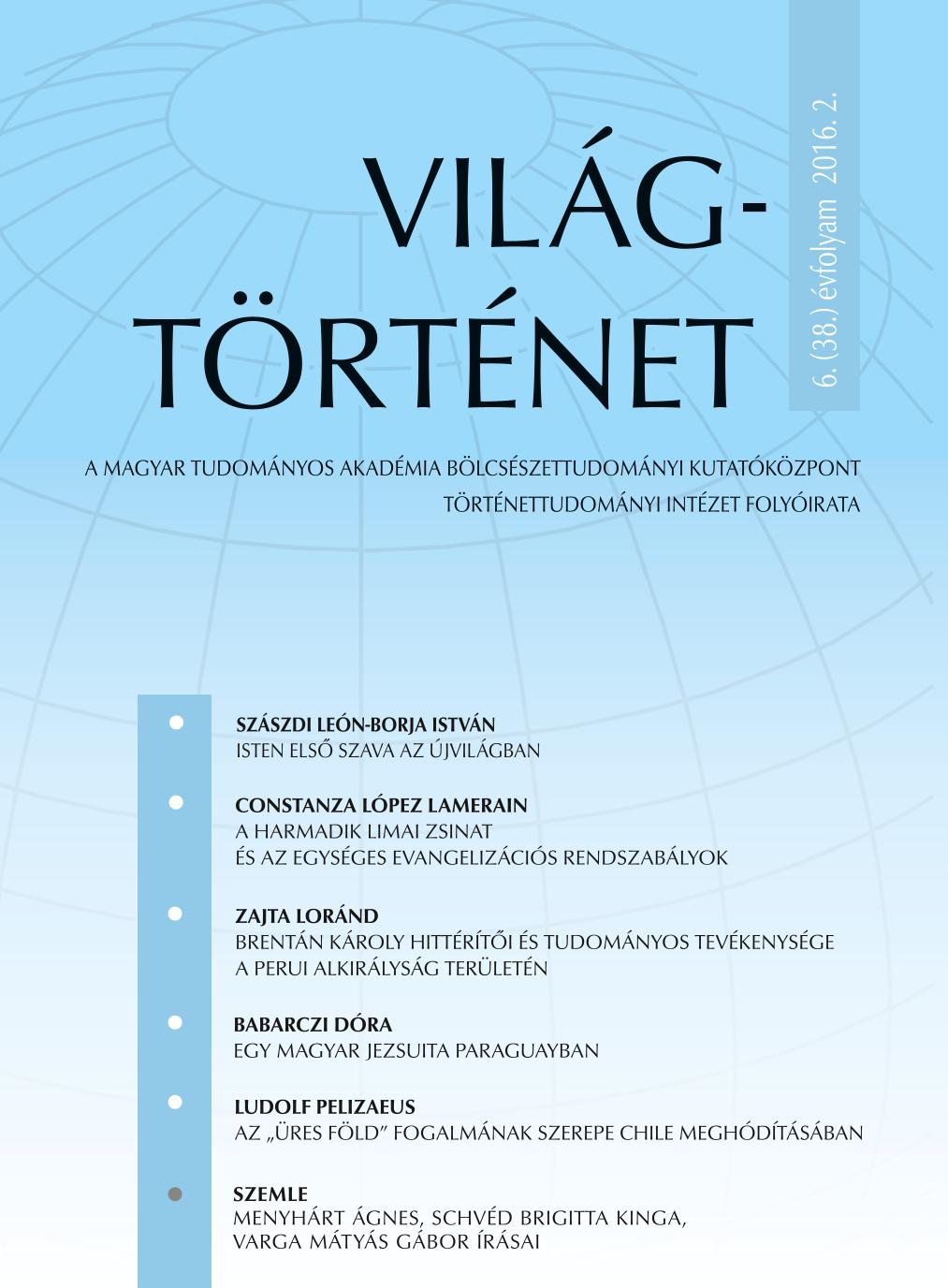Az „üres föld” fogalmának szerepe Chile meghódításában
The Narrative Construct of “Uncolonized Land” and Its Contribution to the Conquest of Chile from the Outset of the 16th Century
Author(s): Ludolf PelizaeusSubject(s): 19th Century
Published by: Magyar Tudományos Akadémia Bölcsészettudományi Kutatóközpont Történettudományi Intézet
Summary/Abstract: With the 1879–1882 military campaign leading to the annexation of the lands inhabited by the Mapuche tribes in Chile and Argentina, European territorial acquisitions in South America came to an end. By that time, not only lands that had previously been inhabited by indigenous peoples had been annexed by force, but also the discourse on the European colonization of Chile had received its ultimate justification. This viewpoint, however, stands in contrast to evidence provided by recent excavations on the site of present-day Santiago, clearly, the city used to be an Inka stronghold before the European conquest, proving the European myth of “uncolonized land” to be erroneous. The article examines various textual and pictorial expressions in historiography that contributed to the emergence and perpetuation of the construct of “empty space” in Chile from the 16th to the 20th century
Journal: Világtörténet
- Issue Year: 2016
- Issue No: 2
- Page Range: 297-318
- Page Count: 22
- Language: Hungarian

